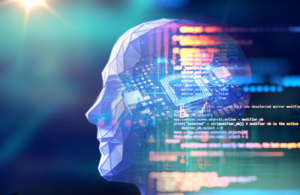
Technology and Personal Healthcare’s Future
Thanks in great part to technological developments, the scene of personal healthcare has changed dramatically recently. From wearable health devices to telemedicine, technology’s integration into healthcare is changing our approach to our health and well-being. The several ways technology is changing personal healthcare, its advantages, difficulties, and future prospects will be discussed in this paper.
The Emergence of Telemedicine: Understanding Telemedicine:
Particularly during the COVID-19 epidemic, telemedicine which lets patients see doctors from away has been rather popular. Without leaving their houses, this technology lets patients get medical advice, diagnosis, and even prescriptions.
Advantages of telemedicine
Accessibility of telemedicine is among its most important benefits. People living in rural or underprivileged communities can establish contacts with experts without long-distance travel required. Telemedicine can also save time and lower the expenses connected with in-person appointments.
Difficulties Found
Notwithstanding its benefits, telemedicine has difficulties including various rules depending on the area, privacy issues, and technology constraints. Maximizing the advantages of telemedicine depends on our addressing of these problems as we advance.
wearable technology for health
Which are wearable devices?
Smartwatches and fitness trackers among other wearable devices have become somewhat well-known recently. These tools may track physical activity, check vital signs, and even offer medicine reminders.
Data Collection and Health Monitoring
By allowing constant health monitoring, wearable technology significantly influences personal healthcare. By means of this real-time data collecting, consumers can make informed decisions regarding their health, therefore improving the results.
Privacy and Data Security Issues
Wearables bring questions regarding data privacy and security even if they have many advantages. Users ought to be informed of the usage of their health data and act to guard their personal information.
Artificial Intelligence in Medical Fields
AI’s Function:
Providing sophisticated data analysis and predictive modeling, artificial intelligence (AI) is transforming personal healthcare. More precisely and rapidly diagnosis of diseases using AI can help medical practitioners
Improving Client Care
By examining medical histories and symptoms, AI-powered technologies can propose possible diagnosis or therapy courses. This not only enhances patient care but also enables medical professionals to concentrate on more complicated cases needing human interaction.
Ethical Aspects
The application of artificial intelligence in healthcare raises moral questions, nevertheless. To guarantee equitable and efficient patient treatment, issues of bias in AI algorithms and the need of human supervision in medical choices have to be answered.
Individualized Healing
Describe personalized medicine.
Personalized medicine is the customizing of medical treatment to the unique qualities of every patient. Thanks to developments in biotechnology and genomics, it is now feasible to develop tailored treatments based on individual genetic composition.
Advantages of Personalization
Personalized medicine’s main advantage is its possibility to raise the effectiveness of treatment. Knowing a patient’s particular genetic profile helps doctors to prescribe drugs more likely to be beneficial.
Difficulties in Application
Notwithstanding its promise, personalized medicine suffers from ethical questions about genetic data, limited access to genetic testing, and expensive expenses.

Mobile Health Apps: Their Function
Development of Mobile Health Programs
Personal healthcare management now depends critically on mobile health (mHealth) apps. These programs let consumers schedule visits, monitor their health indicators, and interact with doctors.
Equipping Individuals
mHealth apps give patients knowledge and tools to actively control their health, therefore empowering them. Improved health results and higher patient involvement in their treatment can follow from this empowerment.
Issues in Quality and Control
Not all mHealth apps, meanwhile, are made equal. Ensuring that patients get accurate advice depends critically on issues of the accuracy of health information and the necessity of regulation.
Blockchain Technology in Medical Knowledge Blockchain.
Renowned for its part in cryptocurrency, blockchain technology is invading healthcare. It presents a distributed and safe way to handle medical information.
Improve Data Security
Blockchain guarantees patient data is safe against breaches, therefore improving the security of health records. Encouraging privacy and security, this technology lets patients select who gets access to their data.
Future Obstacles
Although blockchain has great potential, its use in the healthcare sector will be hampered by scalability issues, legal obstacles, and the necessity of general acceptance among healthcare professionals.
Robotics’ Future in Personal Medicine
The Function of Robotic Technology
From surgical robots to robotic exoskeletons helping with rehabilitation, robotics is becoming ever more important in healthcare. In many different medical treatments, these technologies can improve accuracy and efficiency.
enhancing the patient experience
Reducing recovery periods and hospital stays helps robotic technology also enhance the patient experience. Patients gain from this as well as from better resource management for healthcare systems.
Moral and pragmatic factors
Still, the incorporation of robotics in healthcare begs ethical and pragmatic questions. One should give great thought to the expenses of these technologies and their possible effects on the healthcare personnel.
Healthcare immersive technologies: virtual reality and augmented reality
Innovative technologies under exploration in healthcare environments are virtual reality (VR) and augmented reality (AR). These resources can improve patient education and offer medical practitioners immersive training.
Uses for Medical Training
Simulating difficult surgical operations, VR and AR let doctors practice in a risk-free environment. Enhanced skills and confidence in real-life events can follow from this training.
Improving Engagement of Patients
Apart from training, these technologies can improve patient involvement by means of visual descriptions of medical issues and treatments, therefore clarifying healthcare and increasing its accessibility.
Finally, embracing the future.
Looking ahead, it is abundantly evident that personal healthcare will always depend critically on technology. From telemedicine to artificial intelligence, the opportunities are really large and exciting. But given the ethical, privacy, and accessibility issues these developments raise, one must approach them carefully.
Embracing innovation and giving patient welfare first priority will help us to build a healthcare system that is not only more effective but also more fair. Our dedication to guarantee that everyone has access to high-quality, customized healthcare should change with the times as well.
Ultimately, powered by technology that empowers patients and increases the capacity of healthcare practitioners, personal healthcare has bright future. Though the road ahead may be difficult, there is great chance for better health results. Unlocking the full possibilities of technology in personal healthcare will depend on cooperation among technologists, medical experts, and patients as we negotiate this terrain.